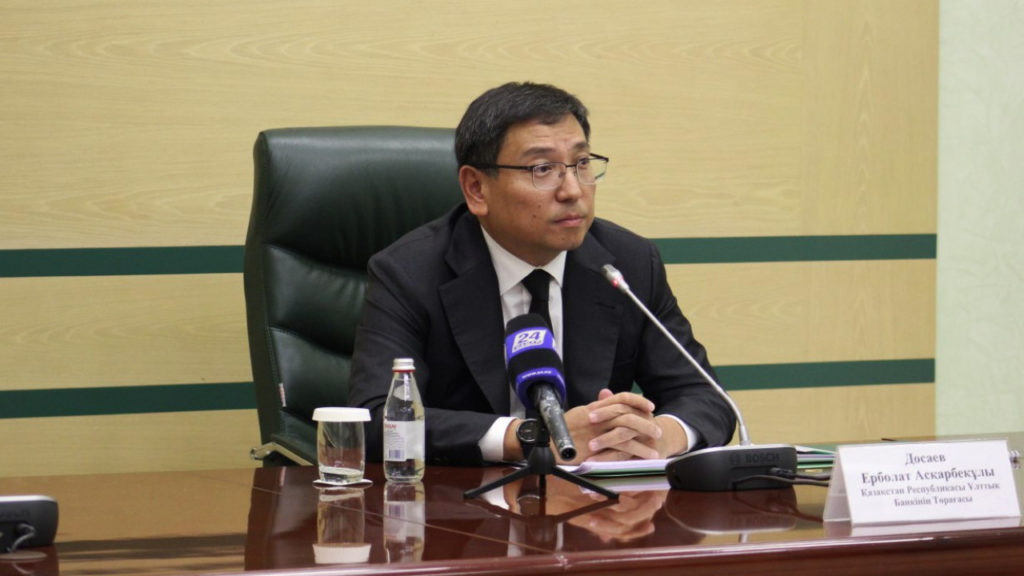NUR-SULTAN – The Ministry of Finance is in negotiations with the Kazakh banking community regarding taxing cashless payments, said National Bank Chairperson Yerbolat Dossayev Nov. 13, reported Zakon.kz. The system should increase budget revenue.
“I believe that the Ministry of Finance is not going to tax the payments, but wants to see that taxes are paid from these payments. On this issue, we are working together with the Ministry of Finance. I believe that an increase in non-cash payments should be accompanied by an increase in budget revenue. That’s natural,” he said.
Talks are underway between the ministry and banking community representatives and Dossayev emphasised the proposal would involve the entire banking sector.
“This was a proposal of the Ministry of Finance and currently it is being discussed with the banking community. This applies not only to payments of any particular bank; therefore, this applies to the entire banking sector,” he added.
First Vice Minister of Finance Berik Sholpankulov spoke to reporters Nov. 7 after the Senate determined frequent transactions from various senders will be monitored to ensure their payments and resulting income are received. Each case must be considered individually.
“This applies to all transactions. There is a source – the recipient of these funds, they will be monitored by a tax account. For example, there are payments from different individuals. Why did someone start to get 1,000 tenge (US$2.58) from everyone? It is clear that they create income. If you listed your father in a one-time transaction, this is not your case. A risk management system will be set up that will track all these flows and put this person in check. If you drop payments – pay your bills or help your loved ones – this will all be considered individually; we do not think that all payments (are taxed),” he said.
As of Nov. 18, cashless payments represent 51.7 percent of monetary transactions in the country, with the balance made in cash. In December 2018, the ratio was 25.53 percent cashless and 74.7 percent cash.

